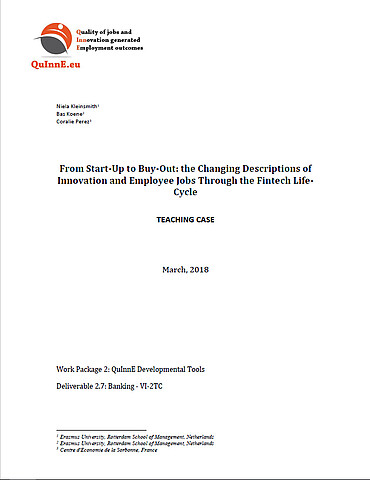Citation Note
Based on field research; 8 pages.
Follow the 'handle' link to access the Case Study on RePub.
For EUR staff members: the Teaching Note is available on request, you can contact us at rsm.nl/cdc/contact/
For external users: follow the link to purchase the Case Study and the Teaching Note.
Abstract
In September 2017, Nicolas Weber, a web designer and manager for Bank in My Pocket (BMP), a former fintech start-up acquired by a large commercial bank, assessed the evolution of the company he had helped to build. Over the course of the start-up's development and repetitive acquisitions and mergers, within successively larger traditional banks, a few of the original job qualities that had attracted him to BMP remained. But many more had changed. The very definition of 'innovation' had mutated to something that was increasingly hard to reconcile with his notion of a fintech start-up. Pushed by a skilled colleague's recent departure, with HR making no effort to retain her, Weber evaluated his company's current stance on a number of HR and innovation issues. Like his colleague, changing employers was a tempting idea.
Objective
1. Explain the 'life-cycle' of financial services start-ups. 2. Describe key differences in mindset and innovation objectives between financial start-ups and larger, traditional banks. 3. Evaluate the job quality of various types of employees in online services. 4. Describe the interrelations between marketing and IT functions in online services. 5. Suggest how HR managers could encourage innovation and improve the job quality of employees within online subsidiaries.
